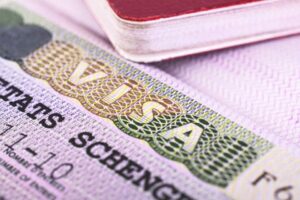The European Commission has approved and updated the Council’s recommendations for re-instating freedom of movement in Europe to include several new details, according to an announcement published by the Commission.
The Commission’s new updates are listed below:
- Fully vaccinated travelers holding valid vaccination certificates should be exempted from travel-related testing or quarantines. The vaccinations must be EU-approved, and should include people who have received a single dose of a two-dose vaccine.
- People who have recovered from Covid-19 and hold certificates in-line with the EU Covid-19 Digital Certificate should be exempted from quarantine or testing for the first 180 days after a positive PCR test.
- People who have a valid negative test certificate that is in-line with the EU Digital Covid-19 Certificate should be exempted from quarantine requirements. In addition, the commission is proposing a standard time period of validity for tests, which would be 72 hours for PCR tests, and 48 hours for rapid antigen tests.
- Member States should use the ‘emergency brake’ mechanism against travel from specific countries only in extreme circumstances when the county’s epidemiological situation deteriorates rapidly or if there is valid reason for concern.
- There will be a color system in place to help Member States determine their decisions on travel restrictions, which is:
- Green: no restrictions
- Orange: requirement for a PCR or antigen test before departure
- Red: requirement for quarantine, unless travelers have a negative PCR or antigen test.
- Dark red: non-essential travel strongly discouraged. Requirements for testing and quarantine remain.
- Minors traveling with parents should be exempted from quarantine when the parents do not need to undergo quarantine. Children under the age of 6 should be exempted from travel-related Covid-19 testing.
- The Commission proposes adapting the European Centre for Disease Prevention and Control (ECDC) to show both the epidemiological situation in countries worldwide and their progress on vaccinations.
The Commission is proposing that all Member States make every effort to roll out the EU Covid-19 Digital Certificate by 1 July 2021. The Commission will assist them to meet this goal by launching the central part of the certificate, which is the gateway that stores the data needed for verification. The gateway will be launched on 1 June 2021.
With the efforts made on the front of vaccinations, the EU could be finally ready to open back up to the world for travel and tourism. The Commission is proposing that this be a gradual and coordinated process.
“The last weeks have brought a continuous downward trend in infection numbers, showing the success of the vaccination campaigns across the EU. In parallel, we are also encouraging affordable and widely available testing possibilities. In this context, Member States are now slowly lifting COVID-19 restrictions both domestically and regarding travel. Today, we are proposing that Member States coordinate this gradual lifting of free movement restrictions, taking into account our new common tool: the EU Digital COVID Certificate. We now expect Member States to make best use of this instrument and the recommendation to allow everyone to move freely and safely again,” said Commissioner for Justice Didier Reynders.
To read the full list of recommendations proposed by the Commission, click this link.









